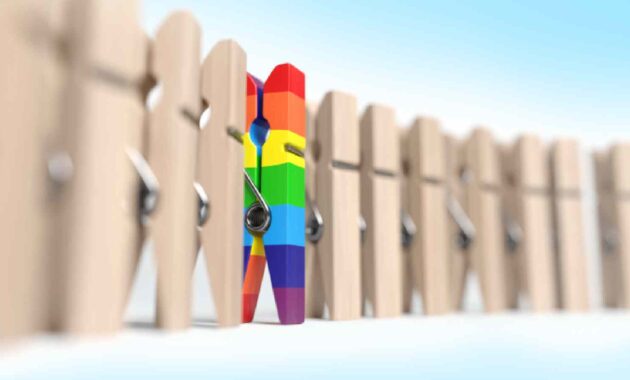Aditya Tiwari, a PR professional, hasn’t faced blatant workplace discrimination. But he hopes that one day, little things that mean the world to the LGBTQ+ community – having genderless washrooms or the use of right pronouns – become a norm in a professional and personal space. Some of his friends have had a different experience. From being asked to walk in a certain way to being asked not to wear jewellery or nail paint, they have faced bias in various forms. One had to lie about dating a girl so that no one questions why they are single! Workplace discrimination for LGBTQ+ community can take a toll on mental health, and it is important to know how to deal with it the right way.
Aditya, who is building his social media identity as ‘The Iconic Aditya’ on Instagram, believes the first step towards it is sensitizing people at all levels. It is important that every person – irrespective of gender or sexual orientation – must be supported and promoted for individual growth, he asserts.
“The community isn’t just about gays or pride flag. It’s about trans lives too. Imagine a trans-person walking in a room and being talked only about their work rather than looked down because they are different. The LGBTQIA+ community lives on the axis of self-expression. We grow up hiding ourselves in schools, homes and colleges. At the workplace, I expect that shouldn’t happen, not in 2023 at least,” Aditya tells Health Shots.

Diversity and inclusion of LGBTQ community at workplaces
Over the recent past, conversations and actions for Diversity and Inclusion feature prominently in the Human Resource policies of major business firms. While that is a step in the right direction, there is no denying that the path of self-acceptance and coming out for the LGBTQIA+ community is riddled with challenges. When this permeates at the workplace, it can affect focus, productivity, confidence and more.
“Workplace discrimination can profoundly impact an individual’s mental health, particularly within the LGBTQ+ community. It can lead to feelings of isolation, heightened stress levels, increased anxiety, and even depression. However, some strategies can be implemented to navigate these challenges and protect mental well-being,” mental health coach Dr Chandni Tugnait tells Health Shots.
Tips to deal with workplace discrimination
According to Dr Tugnait, these strategies can be adapted to overcome the disappointment that stems from bias against the LGBTQIA+ community.
1. Prioritise self-compassion and self-care
Nurturing yourself through self-compassion is crucial when facing discrimination. Engage in activities that bring you comfort, joy and peace. It could be indulging in a hobby, practising self-care rituals, or spending quality time with loved ones. Cultivate self-acceptance, self-love and forgiveness as you navigate the challenges of discrimination.
2. Seek connections
Connect with LGBTQ+ support groups, online communities or social organizations where you can share your experiences, find validation, and receive empathetic support.
3. Embrace authenticity
Embracing your true self and living authentically is a powerful coping strategy. Surround yourself with people who celebrate your identity and accept you for who you are. Explore your passions and interests.
Also read: LGBTQ+ and mental health: Here’s why you are more likely to face mental distress

4. Establish boundaries
Set boundaries to protect your emotional well-being. Identify what situations or conversations may be triggering for you and establish limits to ensure your emotional safety.
5. Practice mindfulness and self-reflection
Engage in mindfulness practices that help you stay present and cultivate self-awareness. Take time to reflect on your emotions, thoughts and experiences without judgment. Mindfulness can provide a sense of grounding and enable you to navigate your emotions with greater clarity and self-compassion.
6. Know your rights
Familiarize yourself with local and national laws protecting LGBTQ+ individuals from discrimination in the workplace. Understanding your rights can empower you to take appropriate action if necessary. Document any instances of discrimination or harassment, including dates, times, locations, and individuals involved. This evidence can be essential if you file a complaint or seek legal recourse.
Watch the Health Shots interview with LGBTQ champion Sushant Digvikar!
7. Educate others
Advocate for LGBTQ+ rights and educate colleagues and supervisors about inclusivity and respect in the workplace. Encourage diversity training and workshops to create a more inclusive environment. Share personal stories and experiences, humanising the impact of discrimination and fostering empathy and understanding.
8. Seek therapy
Seek therapy or counselling to develop effective strategies for managing stress, anxiety, and any other mental health challenges resulting from workplace discrimination.
Importance of an inclusive work environment
The importance of creating inclusive environments where individuals of all sexual orientations and gender identities are valued and treated with respect, cannot be understated.
#LGBTQ #workplace #discrimination #deal #bias
